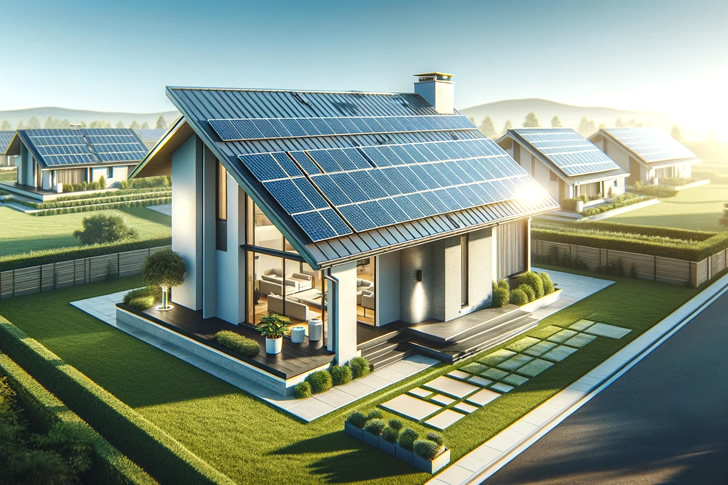Eco-Friendly on a Budget: Cheap Solar Panel Solutions
In today’s environmentally-conscious world, solar panels are becoming increasingly popular as a sustainable energy source. Despite their reputation for high initial costs, advancements in technology and various financial incentives have made solar panels much more accessible. This article explores how homeowners can adopt solar energy economically, focusing on practical and budget-friendly solutions.

Understanding Solar Panels
Solar panels are devices that convert sunlight into electricity. They are typically made from silicon cells that create an electrical current when exposed to sunlight. The typical residential solar system includes several panels, an inverter to convert the generated electricity from DC to AC, plus batteries for storing energy.
The Cost of Solar Panels
The cost of installing solar panels has plummeted over the past decade due to improvements in technology and increased market competition. According to the Solar Energy Industries Association (SEIA), the average price per watt for solar panels is now around $2.81, making the average installation cost between $15,000 and $25,000 before incentives. However, prices can vary widely based on the size of the system, the type of panels used, and geographic location.
Financial Incentives and Savings
One of the most significant factors in the affordability of solar panels is the availability of government incentives. These can include:
- Federal Investment Tax Credit (ITC): Offers a 26% tax credit on the total cost of the solar installation.
- State and Local Rebates: Many states and local governments offer additional incentives that can reduce costs further.
- Net Metering: Allows homeowners to sell excess electricity back to the grid, offsetting the cost of power used during less sunny periods.
Over time, solar panels significantly decrease electricity bills. On average, homeowners can save between $10,000 and $30,000 on electricity costs over the lifetime of their solar system, depending on their location and energy usage.
Choosing the Right Solar Panels for Home Use
When selecting solar panels on a budget, consider the following options:
- Polycrystalline Solar Panels: These are generally cheaper than monocrystalline panels but slightly less efficient.
- Thin-Film Solar Panels: These offer the lowest efficiency but are the most affordable and flexible in terms of installation.
- Used or Refurbished Panels: An increasingly popular option that can offer substantial savings, though it’s crucial to buy from reputable sources to ensure quality and durability.
Installation Considerations
DIY installations can save costs but may not be suitable for everyone. It requires technical knowledge and can affect warranty conditions and the eligibility for some incentives. Professional installation, while more expensive initially, ensures the system is optimized for efficiency, safety, and compliance with local regulations.
Long-Term Benefits and ROI
The return on investment (ROI) for solar panels is compelling. Most systems pay for themselves within 7 to 15 years through reduced utility bills. Additionally, solar panels can increase property values by up to 4.1%, according to a study by Zillow.
Environmental Impact
Beyond financial benefits, solar panels significantly reduce carbon emissions. The average residential solar panel system offsets about 100 tons of CO2 over its lifetime—the equivalent of planting over 2,400 trees.
Maintenance and Upkeep
Solar panels require minimal maintenance, mainly involving routine cleaning and occasional checks to ensure no physical damage or efficiency issues. Most solar panel manufacturers offer warranties that last for 20 to 25 years, covering potential malfunctions and efficiency losses.
Conclusion
Solar panels are no longer just for the environmentally or financially privileged. With strategic planning, taking advantage of available incentives, and choosing the right products, solar panels can be a cost-effective, eco-friendly energy solution for nearly any homeowner. Embracing solar power not only supports the environment but also offers significant financial benefits over time.







Recent Comments